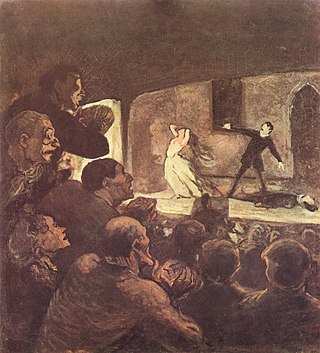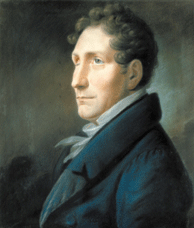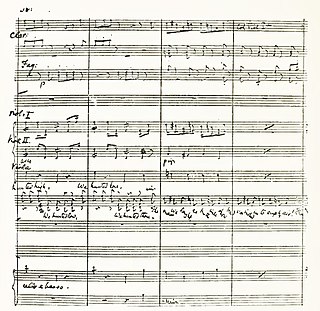Overture is a music instrumental introduction to a ballet, opera, or oratorio in the 17th century. During the early Romantic era, composers such as Beethoven and Mendelssohn composed overtures which were independent, self-existing, instrumental, programmatic works that foreshadowed genres such as the symphonic poem. These were "at first undoubtedly intended to be played at the head of a programme".

Orchestration is the study or practice of writing music for an orchestra or of adapting music composed for another medium for an orchestra. Also called "instrumentation", orchestration is the assignment of different instruments to play the different parts of a musical work. For example, a work for solo piano could be adapted and orchestrated so that an orchestra could perform the piece, or a concert band piece could be orchestrated for a symphony orchestra.

A film score is original music written specifically to accompany a film. The score comprises a number of orchestral, instrumental, or choral pieces called cues, which are timed to begin and end at specific points during the film in order to enhance the dramatic narrative and the emotional impact of the scene in question. Scores are written by one or more composers under the guidance of or in collaboration with the film's director or producer and are then most often performed by an ensemble of musicians – usually including an orchestra or band, instrumental soloists, and choir or vocalists – known as playback singers – and recorded by a sound engineer. The term is less frequently applied to music written for media such as live theatre, television and radio programs, and video games, and said music is typically referred to as either the soundtrack or incidental music.

A modern melodrama is a dramatic work in which plot, typically sensationalized for a strong emotional appeal, takes precedence over detailed characterization. Melodrama is "an exaggerated version of drama". Melodramas typically concentrate on dialogue that is often bombastic or excessively sentimental, rather than on action. Characters are often flat and written to fulfill established character archetypes. Melodramas are typically set in the private sphere of the home, focusing on morality, family issues, love, and marriage, often with challenges from an outside source, such as a "temptress", a scoundrel, or an aristocratic villain. A melodrama on stage, film, or television is usually accompanied by dramatic and suggestive music that offers further cues to the audience of the dramatic beats being presented.
Entr'acte means 'between the acts'. It can mean a pause between two parts of a stage production, synonymous to an intermission, but it more often indicates a piece of music performed between acts of a theatrical production.
Background music is a mode of musical performance in which the music is not intended to be a primary focus of potential listeners, but its content, character, and volume level are deliberately chosen to affect behavioral and emotional responses in humans such as concentration, relaxation, distraction, and excitement. Listeners are uniquely subject to background music with no control over its volume and content. The range of responses created are of great variety, and even opposite, depending on numerous factors such as, setting, culture, audience, and even time of day.
"In the Hall of the Mountain King" is a piece of orchestral music composed by Edvard Grieg in 1875 as incidental music for the sixth scene of act 2 in Henrik Ibsen's 1867 play Peer Gynt. It was originally part of Opus 23 but was later extracted as the final piece of Peer Gynt, Suite No. 1, Op. 46. Its easily recognizable theme has helped it attain iconic status in popular culture, where it has been arranged by many artists.
Turkish music, in the sense described here, is not the music of Turkey, but rather a musical style that was occasionally used by the European composers of the Classical music era. This music was modelled—though often only distantly—on the music of Turkish military bands, specifically the Janissary bands.

Friedrich Daniel Rudolf Kuhlau was a Danish pianist and composer during the late Classical and early Romantic periods. He was a central figure of the Danish Golden Age and is immortalized in Danish cultural history through his music for Elves' Hill, the first true work of Danish National Romanticism and a concealed tribute to the absolute monarchy. To this day it is his version of this melody which is the definitive arrangement.

The William Tell Overture is the overture to the opera William Tell, whose music was composed by Gioachino Rossini. William Tell premiered in 1829 and was the last of Rossini's 39 operas, after which he went into semi-retirement. The overture is in four parts, each following without pause.
On two occasions, Felix Mendelssohn composed music for William Shakespeare's play A Midsummer Night's Dream. First in 1826, near the start of his career, he wrote a concert overture. Later, in 1842, five years before his death, he wrote incidental music for a production of the play, into which he incorporated the existing overture. The incidental music includes the famous "Wedding March".

L'Arlésienne is incidental music composed by Georges Bizet for Alphonse Daudet's drama of the same name, usually translated as The Girl from Arles. It was first performed on 30 September 1872 at the Théâtre du Vaudeville in Paris. Bizet's original incidental music consists of 27 numbers for chorus and small orchestra, ranging from pieces of background music (mélodrames) only a few measures long, to entr'actes. The score achieves powerful dramatic ends with the most economic of means. Still, the work received poor reviews in the wake of the unsuccessful premiere and is not often performed now in its original form, although recordings are available. However, key pieces of the incidental music, most often heard in the form of two suites for full orchestra, have become some of Bizet's most popular compositions.
The Ruins of Athens, Op. 113, is a set of incidental music pieces written in 1811 by Ludwig van Beethoven. The music was written to accompany the play of the same name by August von Kotzebue, for the dedication of the new Deutsches Theater Pest in Pest, Hungary.

Rosamunde, Fürstin von Zypern is a play by Helmina von Chézy, which is primarily remembered for the incidental music which Franz Schubert composed for it. Music and play premiered in Vienna's Theater an der Wien on 20 December 1823.
Musical quotation is the practice of directly quoting another work in a new composition. The quotation may be from the same composer's work (self-referential), or from a different composer's work (appropriation).

Diegetic music, also called source music, is music that is part of the fictional world portrayed in a piece of narrative media and is thus knowingly performed and/or heard by the characters. This is in contrast to non-diegetic music, which refers to incidental music or a score that is heard by the viewer but not the characters, or in musical theater, when characters are singing in a manner that they would not do in a realistic setting.

Theatre music refers to a wide range of music composed or adapted for performance in theatres. Genres of theatre music include opera, ballet and several forms of musical theatre, from pantomime to operetta and modern stage musicals and revues. Another form of theatre music is incidental music, which, as in radio, film and television, is used to accompany the action or to separate the scenes of a play. The physical embodiment of the music is called a score, which includes the music and, if there are lyrics, it also shows the lyrics.
The Julius Caesar overture, Op. 128, is a concert overture written in 1851 by Robert Schumann, inspired by Shakespeare's play Julius Caesar and influenced by the Egmont and Coriolan overtures of Ludwig van Beethoven.








